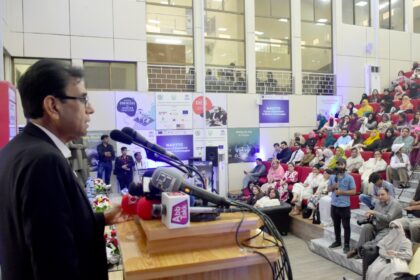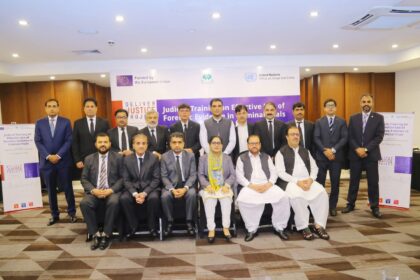Recent floods in Khyber Pakhtunkhwa have caused extensive damage, destroying homes, schools, and vital water systems, leaving many families without access to basic services. However, newly rebuilt water supply structures, designed to withstand extreme climate events, have continued providing safe water to affected children and families even as many older systems failed during the crisis.
The reconstruction effort was carried out by the Khyber Pakhtunkhwa Government and UNICEF, with support from the United Kingdom in Pakistan. These climate-resilient water systems were put in place after the 2022 floods with the goal of improving community preparedness and safeguarding essential services.
In addition to rebuilding infrastructure, UK support has enabled UNICEF to pre-position emergency supplies across the region. This allowed for the rapid distribution of family hygiene kits in Swat and Buner, helping to protect children from the risk of waterborne diseases amid the flooding.
The situation highlights the critical importance of climate-resilient investments. Such measures can mean the difference between safety and suffering, health and illness, and play a crucial role in protecting communities during natural disasters. Ongoing partnerships aim to ensure the protection and dignity of children, while working toward stronger, more resilient communities in the face of future climate challenges.











